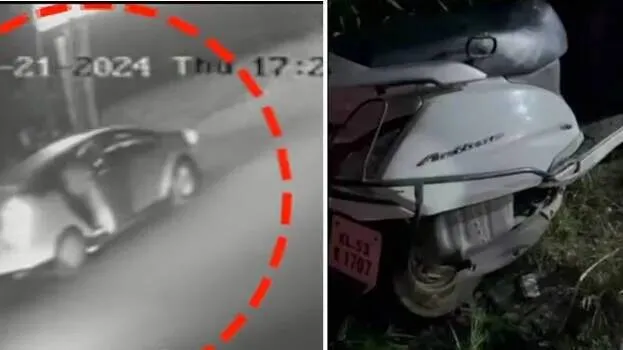
The presidential campaign transfixed our attention for weeks. And now that the “closest contest in memory” turned into an easy victory for Donald Trump, aftershocks are in store for Chicago and the state of Illinois. Gov.
JB Pritzker stepped forward as a national figure during the campaign. And how he responds to what comes next will be important for the state, and a test of Democratic Party resilience, too. The immediate future is fraught.
Trump seems to take delight in bedeviling Chicago and Illinois, meaning the governor and Mayor Brandon Johnson could find themselves tested after Trump returns to the White House. Consider, for example, the CTA Red Line extension. Chicago mayors for decades have touted this as an equity-focused project, which will extend mass transit nearly 6 miles to Chicago’s Far South Side.
President Joe Biden’s administration last year earmarked as much as $2 billion in federal support to make it happen . But there is no construction grant agreement in place, which creates an opening for a reversal by the new Trump administration. The Illinois Democrats in Congress will have less clout if, as expected, both houses have Republican majorities.
And equity is hardly a Trump priority. The $10 billion-plus O’Hare modernization project could undergo new scrutiny, too. Does it seem like I’m overreacting? Tell that to Jason Lee, the Chicago mayor’s chief of staff, who shared concerns about Trump targeting those projects in an interview the Sun-Times published Wednesday.
Looking downstate, a $334 million federal Department of Energy grant that Pritzker announced in July , to help convert an idled Chrysler plant in Belvidere into an electric vehicle “megahub,” may be secure. But the Pritzker administration and Illinois’ congressional delegation would do well to double-check. After all, Trump is no fan of the emerging green energy economy that Pritzker has tried to will into existence in Illinois.
And Trump likely would relish a chance for payback to Pritzker, one of his harshest critics during the presidential campaign. “I hate to mention certain states, but Illinois is badly run with Pritzker,” Trump told Elon Musk during an interview on X. “He’s a real loser.
” The governor clapped back. When Trump appeared at the Economic Club of Chicago in October, Pritzker issued a statement calling him “a rambling, incoherent, insulting old man determined to drive our economy into the deepest ditch he can find.” Even as Pritzker struggles to mitigate the fallout on Illinois from Trump’s victory, Trump’s election could have the paradoxical effect of presenting a new political opening for Pritzker on the national stage.
Had Kamala Harris become president, Pritzker and other Democratic aspirants to the White House might have had eight years to wait for their own chance to be president. Trump’s election moves that timeline forward by four years. Pritzker, who likely harbors White House hopes, has scrambled to develop a national profile — attacking Trump at one turn and hosting last summer’s Democratic National Convention in another.
His best bet now is to take charge of this state’s future in ways that earn national attention. And it won’t be easy. Pritzker has earned high marks for fiscal discipline during his first six years in office.
But the federal pandemic relief funds that helped pay the bills are gone, and he faces daunting shortfalls in the coming years: an estimated $3.2 billion in fiscal 2026, which begins July 1, and potentially climbing to $5.1 billion by fiscal 2028 , according to Pritzker’s own budget office.
If Pritzker can find a combination of cost cuts, job creation and modest revenue increases that help fix Illinois’ fiscal mess, it could be the basis for a “third way”-type argument that could help recast the Democratic Party’s appeal to voters. Innovative thinking will be needed if Democrats hope to recapture the support of voters they have lost to Trump and his party: manufacturing workers, rural residents, younger Black men and others. And Trump’s actions likely will create political openings for Pritzker to seize — much as the governor did after the Supreme Court’s Dobbs ruling, declaring plans to make Illinois a “beacon of hope” for reproductive rights.
If Pritzker does this right — if he restructures the state’s finances, responds nimbly to Trump’s policies and advances measures that expand his base of support — he could help make steps toward a broader repositioning the national Democrat Party sorely needs right now. It will be a tough balancing act, for sure. And one made tougher by the city of Chicago’s fragile fiscal health.
Chicago is the state’s most high-profile asset, and a brewing fiscal meltdown could affect the state’s financial condition — and Pritzker’s political prospects, too. From a burgeoning budget deficit to a looming city pension crisis, to a failure of mayoral leadership that imperils the city’s ability to constructively respond, the city looms as a problem that Pritzker cannot afford to ignore. Ideally, Pritzker and Johnson could work together to benefit both the city and the state.
But a hostile City Council reception to Johnson’s new budget proposal — and its $300 million property tax hike — signals that Johnson will remain a problem, not a partner, for Pritzker for the foreseeable future. The path toward a better future, for the city and state, will not be easy. But who said it would be? Somewhere in the struggles ahead, an Illinois governor with big ambitions may find opportunity to distinguish himself as a leader — and the people who elected Pritzker need him to do just that.
David Greising is president and CEO of the Better Government Association. Submit a letter, of no more than 400 words, to the editor here or email [email protected] .
.














